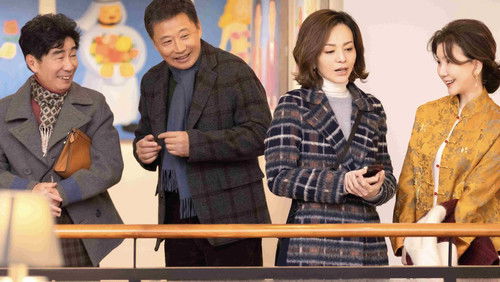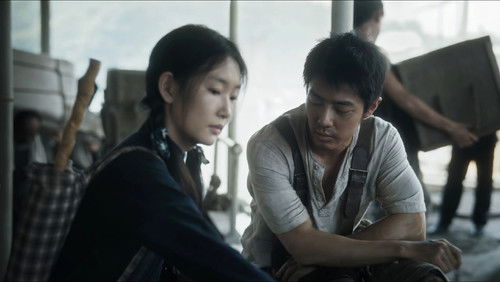Üçüncü Sayfa (1999)
19KÜçüncü Sayfa (1999). 1h 32m
“Structurally speaking ÜÇÜNCÜ SAYFA (THE THIRD PAGE) contains strong echoes of director Zeki Demirkubuzu0026#39;s previous film MASUMİYET (INNOCENCE) (1997) in its portrayal of a doomed love-affair between soap opera extra İsa (Ruhi Sarı) and his married neighbor Meryem (Başak Köklükaya). The story is a straightforward one: Meryem comes across İsa unconscious in his own apartment after İsa has murdered his landlord (Cengiz Seziçi) in cold blood. The two of them become close to one another; and their relationship strengthens once Meryemu0026#39;s husband Yaşar (Şemistan Kaya) comes home and starts beating her up. İsa and Meryem resolve to kill Yaşar in cold blood, but the plan doesnu0026#39;t go as either of them had foreseen.u003cbr/u003eu003cbr/u003eThe basic plot is set against a soap opera in which İsa plays several bit-parts, involving the heroic İbrahim (Bülent Düzgünoğlu). This is a cheap and cheerful production using a skeleton crew and a camera operator sitting in a wheelchair. A script girl reads out the dialogue that the actors simply repeat. None of the actors – except, perhaps, the leads – are professional; the production pays amateurs to fill the small roles to cut costs down. The device enables director Demirkubuz to make some trenchant points about the similarities – and more significantly, the differences – between life and art. Soap operas can be wrapped up at the end of each episode; human lives cannot. This is one of the destructive consequences of the mass media today, as it offers visions of perfection that few people can fulfill. Nonetheless people clamor to be involved in the soap, as witnessed on two occasions during the film where prospective actors are interviewed direct to camera about possible future prospects. They might not be qualified for the task, but at least they are cheap.u003cbr/u003eu003cbr/u003eYet Demirkubuz is not always so negative about the media and its consequences. On at least three occasions, including the end credits, we either see or hear sequences from classic Yeşilçam films. Their stories might be clichéd, their plots repetitive; but they have the power to shape peopleu0026#39;s lives in positive fashion, offering a vision of completeness that simply doesnu0026#39;t happen in real life. Sometimes art can tell us about life, especially where love- affairs are concerned. İsa understands the power of movies to affect his personal psychology, which explains why he has posters and photos of movies past and present plastered across his apartment walls, including a large color poster of an action thriller starring 70s tough guy Cüneyt Arkın. Although physically diminutive, İsa can at least imagine what a herou0026#39;s life must be like.u003cbr/u003eu003cbr/u003eBy contrast the world of contemporary politics seems remote and uncaring. The film begins with a violent sequence in which İsa is beaten up by a gang-leader, having been unable to pay the $50 dollars İsa owes. On one of the room walls there is a picture of the then Prime Minister Tansu Çiller smiling at the camera. That image of perfection contrasts starkly with the violence taking place in the room. On another occasion President Süleyman Demirel is shown on television talking about an equal and just society in which everyone should have a voice; no one in the kıraathane listens to him as they gamble and subsequently fight with one another. In the underworld of İstanbul, politics simply has no meaning, especially as broadcast on the media.u003cbr/u003eu003cbr/u003eThe film ends with a dedication u0026quot;To the defeated, to the forgotten,u0026quot; as well as to technical director Ajlan Altuğ. One thing is certain – after watching this powerful piece, we certainly cannot forget the lives of at least two defeated and forgotten protagonists.”









